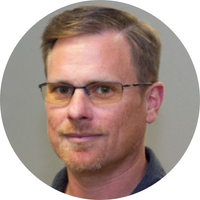
You are an officer with the ACS Division of Business Development and Management, which features, among other things, BILL Talks. What are BILL Talks, and how did the concept come about?
The best way to describe the BILL Talks concept is a TED style talk by members of the ACS that have a knack for business and are dynamic speakers. The Division came up with the concept because many of our members are too busy to travel to national ACS meetings and we wanted a way to provide meaningful content in a concise format.
Speaking of BILL Talks, you contributed one that provides excellent career advice on a variety of topics, such as opportunity, learning, and dealing with people. Let’s focus for a second on early career professionals. Best piece of advice for them?
There is no such thing as a one size fits all piece of advice, but for early career professionals I would suggest that the most important thing you need to do is listen and learn. Nothing is more powerful than gaining experience and learning as it will serve you later in your career.
What about mid-career chemists? What career guidance can you offer them?
This is tough, since everyone’s experience is different. I would offer that you need to pay attention to the big picture and remain curious. As I said before, learning every day is important. But this also includes, learning the business, what other departments do, keeping up with the news, so that you can anticipate changes and be prepared for them.
Your Bill Talk includes many interesting quotes. What’s your all-time favorite quote?
I’m not sure I have a favorite. I actually think in quotes. Ever since I was a little kid I have been a movie buff and quotes just pop into my head associated with what is being discussed. One quote I use often is “Welcome to the party pal!” from Die Hard when John McClane first meets Al Powell. I live in a frenetic world, with three kids and working in a start-up and when someone is surprised by the craziness I often think of this quote.
On several occasions, you have been part of a team that successfully brought a drug to market. Not surprisingly, you have been involved with many unsuccessful efforts, too. How fine a line is there between success and failure in biopharma?
You can’t have one without the other. It’s like yin and yang, light and dark, winning and losing. Failure is a part of life, but failures are just learning opportunities to improve and help avoid problems in the future. And in time, if you fail enough and learn enough, you will have some success.
You have spoken about the importance of learning. Can you share a significant learning experience at Vertex, Gilead, or SteadyMed that has served you particularly well in your current role at InCarda Therapeutics?
There are so many experiences that I could mention, but a memory that I spoke about in my BILL Talk, that still gets me to this day, is the lesson of not burning a bridge. Early in my career, I watched a colleague burn a bridge in the most epic way. He was unhappy and left the company I was with and he told off his boss publicly leaving on bad terms and within a few hours the company he was going to work for laid him off. The biopharma industry is very small in some ways and you never know when one of your colleagues will be important and you might not even know.
What, if anything, will change regarding the unfavorable public perception of biopharma in the wake of the industry’s highly-successful COVID-19 vaccines?
The pharma industry has spent very little effort trying to fix its reputation. I blame much of that on greed and our broken health care system in the US. While I believe the vaccines for COVID-19 are nothing short of a moon shot, I’m not terribly optimistic that the industry will continue to share resources and collaborate like we see today during the pandemic.
This is primarily because companies are incentivized to make blockbuster drugs and not drugs that meet an unmet need unless there is a lot of money to be made. Until we have a healthcare system that rewards companies for health outcomes, then I’m not sure the reputation for biopharma will improve.
What is the one personality trait that has been most instrumental in your career success? What trait do you wish you had in greater supply?
The one trait that has been the most important over the years has to be grit. The ability to deal with adversity and continue on with a smile on your face. We all confront adversity in our lives, and our attitudes and the way we choose to behave during those times really have an impact on our success.
As for a trait that I wish I had in greater supply, I would have to say calm. Put it another way, I am an extreme extrovert (compulsive some have said) and it is hard for me to stay still and quiet especially when excited. If I could learn to be calmer, I think that would serve me well.
How has your family influenced your leadership style?
There is no better management training than having children. I have taken plenty of training courses on time management, leading without authority, leadership, etc., but children teach you patience, compassion, empathy, managing anger and disappointment, having difficult conversations, and humility, which are all important when you are a leader.
What non-technical skills have you most relied on to-date for your career advancement?
Emotional intelligence is the most important skill. The most important thing we do outside of our technical expertise, is working with other humans. Understanding how other people feel, their points of view, their learning style, etc. really allow you to work in a team, work with contract organizations and consultants, work out business development deals, and the like because our jobs are really to work well with others to get a job done.
You have spent countless hours in numerous volunteer roles for ACS. Why?
I have always had a sense of wanting to give back to others. The ACS has afforded me numerous opportunities to serve my fellow chemists. It has also helped me in my career by learning new skills and gaining experience in managing projects and teams, often without authority, pitching ideas for new products and services, planning and budgeting, and networking.
Is it important for the United States to preserve its competitive advantage in the area of science and technology? If so, how should it go about doing that?
For the US job market to remain robust, we need to continue to invest in science and technology. For the US to be competitive with other countries, we need investment from all sectors. From a policy perspective, continuing to invest in basic research has to remain a priority, but we also need to advocate for lowering barriers for innovative products to make it to the market by having common sense regulations that are easy to follow and anticipate. The private sector also needs to raise wages, sponsor more visas, and spend a larger percentage of revenue on R&D.
What’s the one thing about which you most often say, “Well, maybe one day”?
As a cancer survivor, I have to admit I don’t have a lot of regrets. I try to live every day to the fullest as if it might be my last, so this isn’t a thought that creeps in very much. However, with the pandemic, I do miss traveling around the world and seeing friends, so maybe one day soon I’ll be able to travel.
Who is on Mick Hurrey’s personal Board of Directors?
Just like a Board of Directors for a public company, I select members of my personal Board based on expertise in different areas so that there is a diverse set of experiences and opinions to draw from. These people are mentors of mine that I have known for years and have helped me navigate tough challenges.
I have Kelly, who was a supervisor years ago, but has the highest emotional intelligence of anyone I’ve ever met. I go to her when I need advice about how to read people and understand their motivations. There is Drazen, who I’ve worked and fished with, who helps me when I really have a tough scientific question and need a sounding board on how to solve it. There is Carlos, who is my current supervisor, who has really seen everything in the start-up world and helps me understand things as they unfold in areas of finance, organizational management and strategy, venture capital and investors, etc.
Really I just have a rich network of friends and mentors that help me navigate life and I think it’s one of the most important things you can do to help you continue to grow.

Mick has over 15 years of pharmaceutical and device development experience within large multi-national biotechs to small innovative start-ups. His projects have ranged from solid oral dosage forms to computer controlled parenteral combination products across antiviral, oncology, and cardiopulmonary indications. Prior to joining InCarda, he served as the Senior Director of Pharmaceutical Development at SteadyMed Therapeutics working to launch a drug/device combination therapy for pulmonary arterial hypertension. Prior to SteadyMed, Mick worked at both Gilead Sciences and Vertex Pharmaceuticals.
Mick earned his BS in Chemistry from the University of Central Florida and a PhD in Analytical Chemistry from the University of North Carolina – Chapel Hill. Over his career, Mick has earned numerous awards for outstanding contributions both at his employer and for external organizations such as the ACS and IUPAC.
Copyright 2021 American Chemical Society (All Rights Reserved)
This article has been edited for length and clarity. The opinions expressed in this article are the author's own and do not necessarily reflect the view of their employer or the American Chemical Society.












